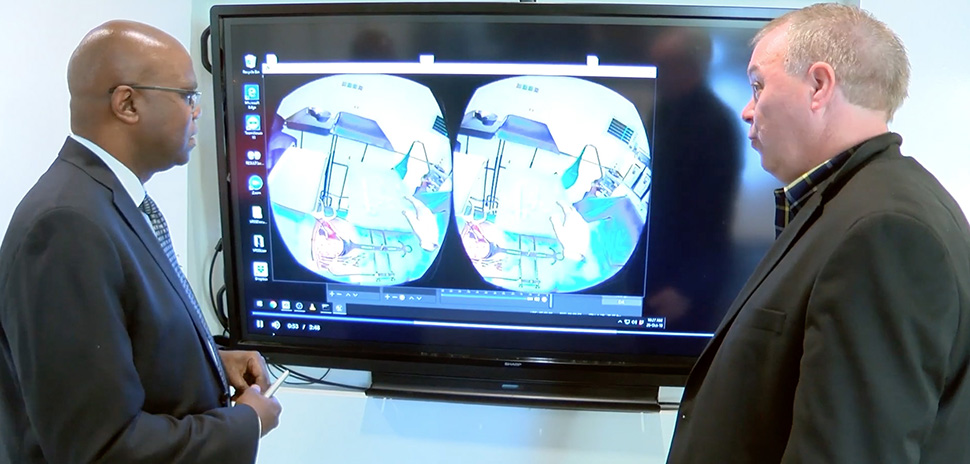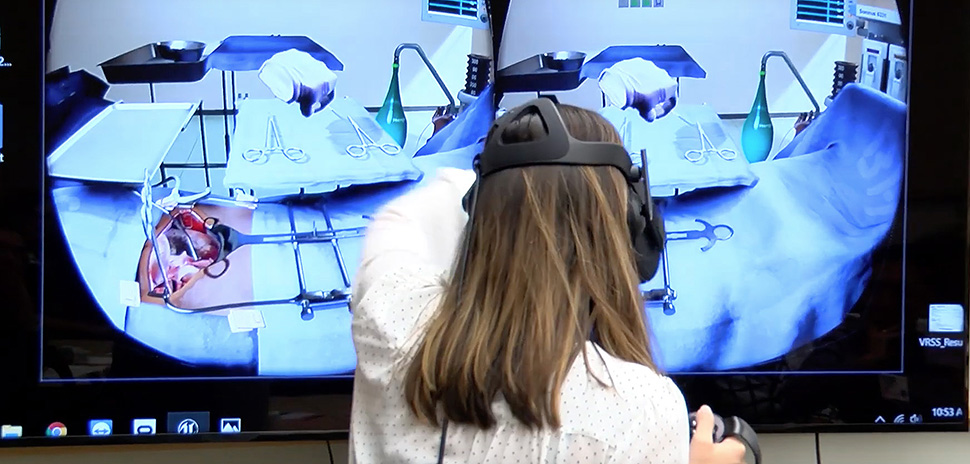Global health researchers and video game designers from Dallas’ Southern Methodist University are part of an international team using video game technology to train surgeons in sub-Saharan Africa to perform life-saving cancer surgeries.
One of the world’s most preventable and treatable forms of cancer, cervical cancer, remains a major mortality issue in Sub-Saharan Africa, according to SMU. The area is generally defined as the 48 countries that lie south of the Sahara Desert on the African continent.
In Zambia, for example, cervical cancer kills more women than any other disease.
One in five cervical cancer deaths around the world occurs in the Sub-Saharan region, which has a critical shortage of trained surgeons. This often forces women who have been diagnosed to wait months for hysterectomies.
As they wait, their tumors grow and progress, reducing the chances of survival even more.
“Radical abdominal hysterectomy is central to the treatment of early-stage invasive cancer of the cervix, a disease whose burden is the greatest in the world’s poorest countries,” Eric Bing, professor of global health at SMU and former director of global health at the George W. Bush Institute, said in a statement. “Two of the major challenges in developing surgeons to perform the procedure are the time required to train surgeons and the availability of mentors. Low-cost VR may represent one of the solutions to increasing access to surgical cancer care globally.”
Bing and Anthony Cuevas, who is the SMU director of instructional design and a clinical professor, recently returned to the U.S. from Lusaka, Zambia.
The duo is part of the team using widely available technology and Oculus Rift hardware to mirror what a surgeon might do in real life. The technology allows surgeons to practice hysterectomies virtually with off-the-shelf tech prior to training with mentor surgeons during real procedures.
The surgical training utilizes virtual reality technology originally designed for in-home computer gaming and costs less than $1,000 per training station. Typically, VR surgical training technology intended for higher-income countries uses training stations that can cost more than $100,000 each.

Eric Bing and Tony Cuevas look at the VR simulation. [Photo: via SMU video]
During their training, physicians use VR headsets with hand controllers linked to software on a laptop computer.
The simulation depicts the surgical theater of an actual hospital in Lusaka, Zambia that is replete with instruments, supplies, and beeping monitors. A life-size virtual patient featured in the simulation lets the surgeon virtually make an incision, clamp, cut, and suture arteries and veins, then perform a radical hysterectomy.
Researchers determined that novice surgeons in Lusaka who underwent the training became more efficient with their time and movements over just six 20-minute virtual reality sessions. Results of their research were published in the Journal of Global Oncology in May.
Bing is the author of Pharmacy on a Bicycle: Innovative Solutions for Global Health and Poverty. He has also created and managed innovative health programs throughout Africa, the Caribbean, and South America.
Cuevas is a former curriculum designer and academic director of SMU’s Guildhall, a top-ranked graduate-level video game development program. Cuevas’ research includes the design and integration of games, simulations, and VR and AR into educational instruction.
Bing and Cuevas are both on the faculty of SMU’s Simmons School of Education and Human Development.
![]()
Get on the list.
Dallas Innovates, every day.
Sign up to keep your eye on what’s new and next in Dallas-Fort Worth, every day.






























